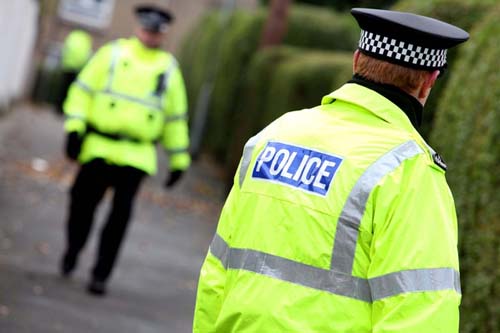POLICE Scotland has become involved in a row over claims its public satisfactions survey is “rigged” and leads to “skewed” figures.
The force’s monthly opinion poll only deals with people who have reported crimes and not those whose contact with officers was “initiated” by the police.
This means that the views of people stopped and searched, or motorists pulled over by police do not count towards the stats.
Since September 2013, around 1,300 surveys have been completed every month to assess views of police performance by asking respondents about their level of satisfaction and confidence in Police Scotland.

One of the Chief Constable’s deputies, Rose Fitzpatrick, cited the “user satisfaction survey (USS)” in the middle of the stop-and-search row.
She said that 16,000 people had been surveyed between January and December 2014 and added: “More than 83% of respondents expressed satisfaction with how their incident was handled; almost 79% stated their confidence level in Police Scotland was high or very high.”
Between October 2013 and March 2014 around 80% of respondents said their confidence in Police Scotland was high or very high.
A “user” of Police services is defined as someone who has reported a crime or incident to the force.
Citizens who have been stopped and searched, or pulled over do not. Nor do suspects of crimes or people who have been approached by the force to act as witnesses.
Sexual and domestic cases, and sudden deaths are also excluded from the survey.
A source close to the force said: “If you just focus on people who have contacted the police, rather than everyone who has had contact with the force, the methodology looks rigged.”
MSPs on Saturday expressed concern about the revelations.
Ex-Police officer and independent Islands and Highlands MSP, John Finnie said: “It is time for the chief constable to stop pouring resources into fire-fighting the public backlash to his flawed operational decision, end the dodgy data and start delivering the community based policing the public wants.”
“Conservative justice spokeswoman Margaret Mitchell said: “In order to be meaningful, [the survey] should have taken in the opinions of a cross-section of the public, not just those who had contacted the police to report a crime.”
Labour justice spokesman Hugh Henry said: “It would be a huge blow to the credibility of Police Scotland if it is only asking the opinion of those most likely to give a positive response.”
A Police Scotland spokesman said: “The USS is just one of the many ways we engage with the public; the methodology ensures we capture a realistic and reliable picture of the quality of service provided by Police Scotland and it remains an important way of helping us shape the service we provide communities.”
The force’s Chief Constable has faced difficult questions for a year surrounding controversial stop and search policies and armed policing.
It emerged last year that officers had been carrying firearms to routine call-outs, and House said armed response vehicles would only be sent to firearm or life-threatening incidents.
But, it was revealed last week that armed officers had engaged with the public 1,644 times since House’s decision.
He was also criticised after Police Scotland announced that “consensual” searches of under-12s would cease – yet the practice continued after MSPs were told it had ceased.

